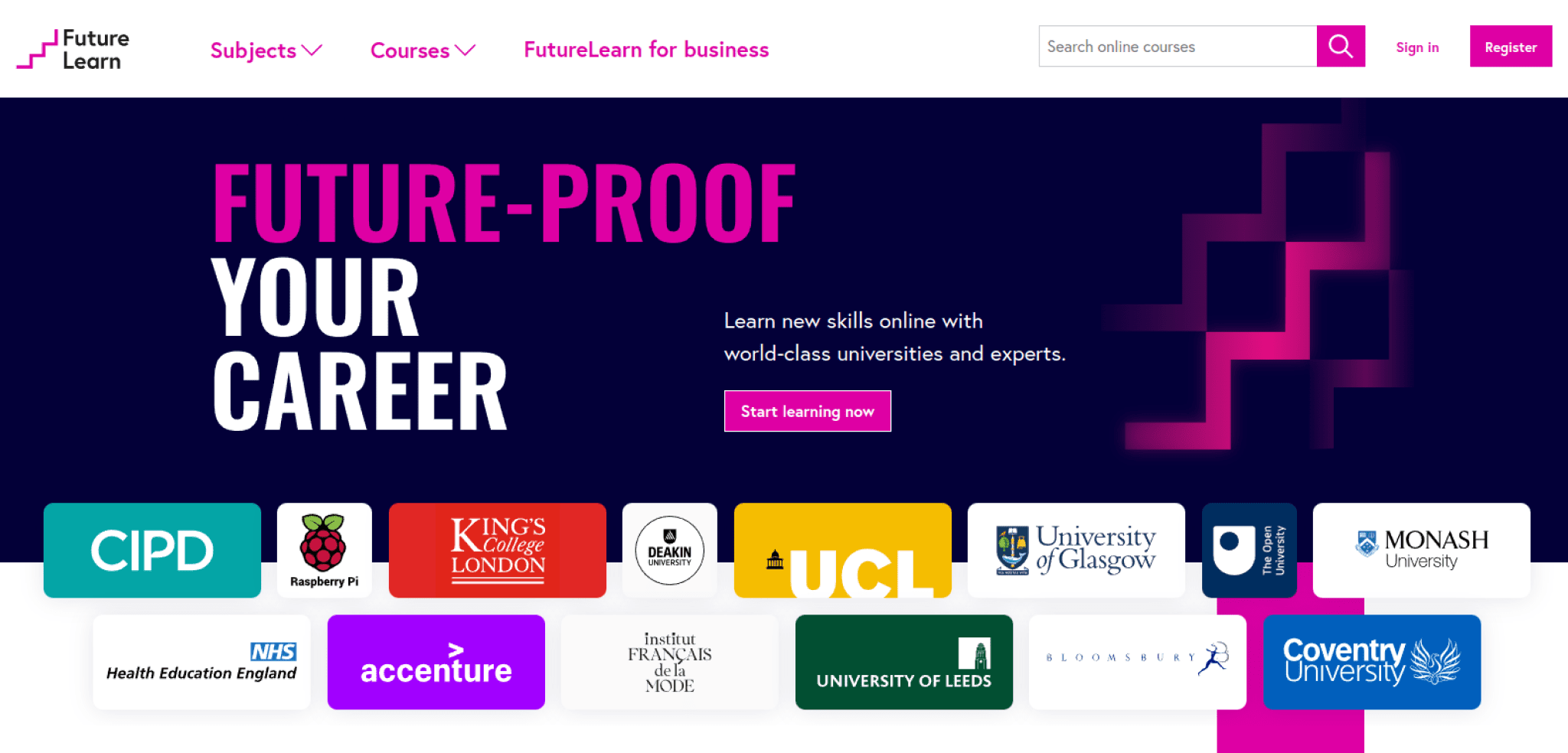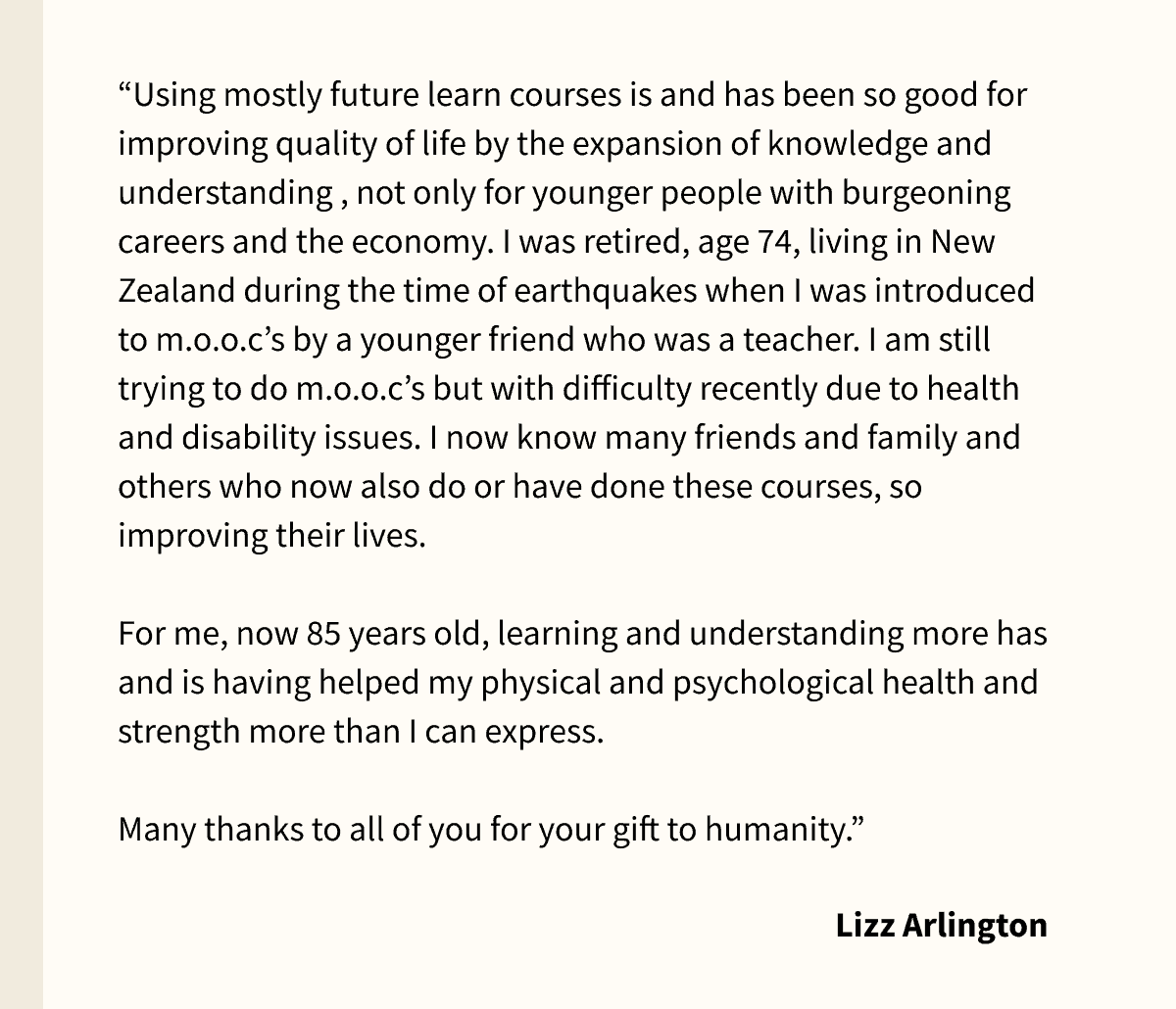FutureLearn Acquired by Global University Systems (GUS)
FutureLearn’s board will be chaired by Jo Johnson, ex-minister and younger brother of Boris Johnson.

In the wake of FutureLearn’s layoffs announcement, we learned that the platform had been sold to Global University Systems (GUS), which is based in the Netherlands. According to Wikipedia, GUS “owns and operates several private for-profit colleges and universities in the UK, Canada, Israel and Europe, as well as other brands and companies in the education sector.”
According to Times Higher Education, GUS will buy the shares of both Open University and Seek Group, who each own 50% of FutureLearn. Jo Johnson (Lord Johnson of Marylebone) will be the new chairman of the board. He’s also the younger brother of Boris Johnson, ex-Prime Minister of the UK.
According to the press release sent by FutureLearn:
“GUS will provide FutureLearn with access to its proprietary AI-powered career management solution, therefore widening FutureLearn’s offering to provide fully-fledged career advancement, linking learners with content, accreditation, mentorship and career opportunities.”
😒
Last year, when 2U acquired edX, I wrote a 4,500 word analysis. This time, I don’t have much to add. It’s the first time I’ve heard of GUS, and since both are private companies, there isn’t much public information to dig through.
But the narrative they’re trying to promote is similar to what we heard when 2U acquired edX. Here’s FutureLearn CEO’s statement on LinkedIn:
“Really looking forward to this next phase of FutureLearn’s journey and the capabilities and benefits it will bring to our platform accelerating the products and services we can deliver to learners and partners.”
2U had money and expertise that was supposed to help edX compete with Coursera. I haven’t seen any evidence of this happening. 2U has been more focused on consolidating its activities under the edX brand. Former edX CEO Anant Agarwal, who became Chief Open Education Officer following the 2U acquisition, switched his role to Chief Platform Officer nine months later.
I suspect FutureLearn’s role under GUS will be similar to edX’s role under 2U: feeding FutureLearn learners into different entities owned by GUS, thereby reducing acquisition costs.
The last time FutureLearn raised money was when SEEK group invested £50M in 2019. Unfortunately, FutureLearn burned through the money in three years, with little to show for it.
Between 2019 and 2021, FutureLearn losses grew by 145% while revenues grew by a modest ~45%.
| Revenue | Losses | Learners | |
| 2021 | £11.3M | £16.1M | £16.5M |
| 2020 | £9.9M | £13.3M | £13.5M |
| 2019 | £7.9M | £6.6M | £9.5M |
| 2018 | £8.2M | £4.1M | £8.0M |
Earlier this year, FutureLearn reported that they needed an additional £15 million to survive. So change was expected. Shareholders agreed to provide the funding in three tranches of £5 million, the last one being scheduled for January 2023. The acquisition by GUS suggests that this last-ditch attempt to keep the company afloat might not have sufficed.
An Early Disadvantage
There are likely many reasons for FutureLearn’s downfall, but I think one of the biggest ones is that they were never backed by a global university brand. Coursera was started by Stanford professors, and edX was backed by Harvard and MIT. These universities put a lot of resources into creating courses almost exclusively for their respective platforms. This gave these platforms a certain cachet that allowed Coursera and edX to attract learners and conclude partnerships with other universities.
UK-Based FutureLearn started out a year later than Coursera and edX and was backed by The Open University. As the de facto European counterpart to Coursera and edX, one might have expected European universities to flock to the platform. But most major universities in the UK didn’t launch MOOCs and MOOC-based degrees. As for the few that did, FutureLearn wasn’t their preferred partner.
But this might change a bit, given the political power of FutureLearn’s new leadership.
Social Learning
As a platform, FutureLearn made an early decision to commit to social learning. It differentiated itself from other platforms by having the comments right underneath each video rather than in a separate discussion forum. I was personally a big fan of FutureLearn’s product and design, and I even received some mentorship/advice from FutureLearn’s first product manager last year, after he left the organization.
But as other platforms realized that the path to monetization was tied to skill-based learning, FutureLearn couldn’t adapt fast enough and might have lacked the right partners. The platform’s approach might not be as suitable for learning, say, programming and data science. It’s current homepage does try to emphasize its focus on skill-based learning:

As someone who’s been doing MOOCs since 2011, I personally admire FutureLearn’s commitment to social learning, even when other platforms basically gave up on it. Unfortunately, they couldn’t make it work as a business.
A recent comment left by a learner on our article about the FutureLearn Layoffs captures the importance of learning beyond just career impact:
This is true for me as well as many members of the Class Central team. It might have helped our careers, but learning for the sake of learning has improved our quality of life. Lifelong learning has been a victim of MOOCs’ failure to create a sustainable business model beyond skill-based courses.

Tags








Marcus
FutureLearn is in my view, complete underdeveloped. For me personally, the courses are to short (2,3,4 weeks) and many interesting courses are not available. You are right Dhawal, the main problem is FutureLearn have no big institution they backed this site, and the Open University is not really a big player in the University landscape.
I think when GUS now acquire FutureLearn we will see the same as with 2U and edX: Start to offer their expensive programms and higher prices. FutureLearn´s potential was there, but this step is a capitulation by the OU and SEEK.
Fred
I hope this deal becomes beneficial to FutureLearn. Goodluck to them.